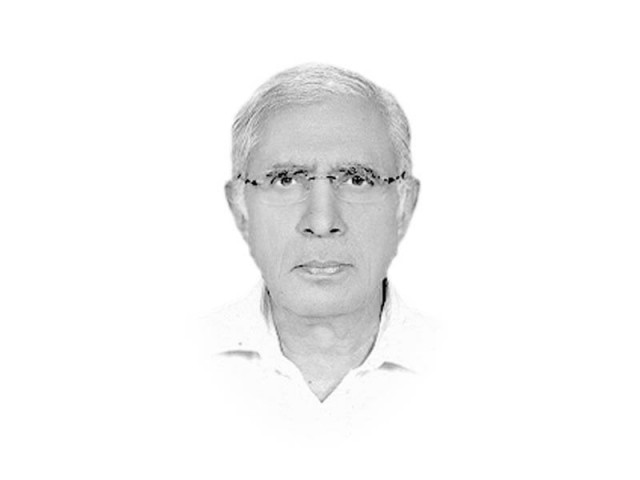Comprehensive National Power
The globalisation process has turned the world into an increasingly interdependent entity

The writer served as executive editor of The Express Tribune from 2009 to 2014
It was indeed reassuring to see our army chief completely conversant with the socio-economic challenges that the country is currently facing. And most of the solutions he has proffered for meeting these challenges also appear to be an outcome of a well-thought out and holistic analyses of the situation confronting today’s Pakistan. Indeed, no country with a weak socio-economic base could boast of a fail-safe security status.
The globalisation process has turned the world into an increasingly interdependent entity. No nation-state or a country can now claim to be absolutely sovereign, in both socio-economic or/and military sense. However, without an irreducible minimum sovereignty over its economy and culture as well as its military prowess no country can escape being turned into a subservient state fated to trade its independence for survival. Such nations find themselves constantly threatened by the fate that the Soviet Union had to face during the closing days of the Cold War.
As globalisation is firstly an economic process, it is understandable that security has shifted from the military to economics. Economic security takes particularly into account the new risks occurring from the combination of the globalised competition and the incredible new role of information, for example, threats on data, attacks on public research centres, attacks from financial predators against state currencies, stock market manipulations, short selling exports to damage competitors in the world market, etc.
When Indian Prime Minister Narendra Modi threatens to punish Pakistan with international isolation, he is not talking about political isolation of a nuclear Pakistan. This he cannot achieve even if he were to succeed in mobilising majority of world opinion against this country. What, however, we should guard against is being rendered isolated in the geo-economic terms.
Here it would not be out of place to refer to the declared objectives of the Hafiz Saeed-Maulana Samiul Haq-led Defence of Pakistan Council (DPC) that professes either conquering India (or at least ousting the 700,000 Indian troops from Indian Occupied Kashmir) and Afghanistan or in case we cannot do either to bottle up Pakistan by closing down our eastern, western and northwestern borders. This approach has led us into regional isolation which in turn has severely affected our economy. Elements of the same ideological hues have also continued to deny Afghanistan the facility to use land route through Pakistan to import goods from India using the same trucks that deliver Afghan exports to India at the Wagah border.
Nobel laureate Thomas C Schelling’s seminal work on strategy of conflict and the ‘nuclear game’ took economics beyond the more mundane pre-occupation with the economics of war and national security that grabbed the attention of many economists during and after the Second World War.
In China, the collapse of the Soviet Union seemed to have encouraged greater respect among strategic policymakers for the views of professional economists in shaping strategic and foreign policy choices. It was at a defence establishment think tank that Chinese strategists developed the notion of Comprehensive National Power (CNP), which gave a higher weight to economic and social aspects of national security over the purely military.
CNP is a measure, important in the contemporary political thought of the People’s Republic of China, of the general power of a nation-state. It can be calculated numerically by combining various quantitative indices to create a single number held to measure the power of a nation-state. These indices take into account both military factors (known as hard power) and economic and cultural factors (known as soft power).
Published in The Express Tribune, October 14th, 2017.
Like Opinion & Editorial on Facebook, follow @ETOpEd on Twitter to receive all updates on all our daily pieces.













COMMENTS
Comments are moderated and generally will be posted if they are on-topic and not abusive.
For more information, please see our Comments FAQ